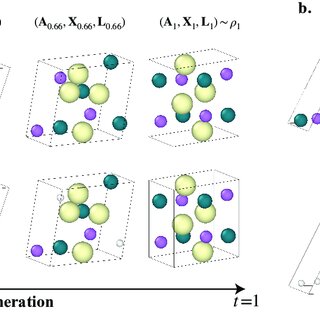Key Takeaways
- A new computational framework called Open Materials Generation (OMG) has been developed to predict and discover inorganic crystalline materials.
- OMG uses advanced techniques to connect different types of crystal structures, improving the accuracy of predictions for new materials.
- This framework sets a new benchmark in materials discovery, demonstrating superior performance compared to existing methods.
Quick Summary
The ongoing quest for new materials is crucial for technological progress across various industries, from electronics to renewable energy. To facilitate this discovery, researchers have developed a novel computational framework named Open Materials Generation (OMG). This framework aims to effectively navigate the vast landscape of stable crystal structures, which are the building blocks of inorganic materials.
OMG employs a method known as stochastic interpolants (SI), which allows it to transition from a basic set of known structures to a target distribution of desired crystal forms. This approach incorporates a variety of stochastic processes, including diffusion models and flow matching, which are specialized methods for generating new data based on existing information.
A key innovation of OMG is its integration of an equivariant graph representation of crystal structures. This means that the framework can account for the symmetrical properties of crystals, which are vital for accurately modeling their behavior. Additionally, OMG addresses periodic boundary conditions in unit cell representations, which are essential for simulating how materials behave at a microscopic level.
The researchers tested OMG’s capabilities through two main tasks: Crystal Structure Prediction (CSP), which focuses on predicting the arrangement of atoms in known compositions, and ‘de novo’ generation (DNG), which aims to discover entirely new and stable crystal structures. The results from these benchmarks indicate that OMG not only refines existing methods but also surpasses previous state-of-the-art approaches in both CSP and DNG tasks.
By establishing new metrics for evaluating performance, OMG highlights the significance of flexible deep learning frameworks in accelerating advancements in materials science. The findings from this research suggest that such innovative computational techniques could lead to faster and more efficient discovery of materials, potentially transforming industries reliant on new material applications.
Disclaimer: I am not the author of this great research! Please refer to the original publication here: PDF Link

